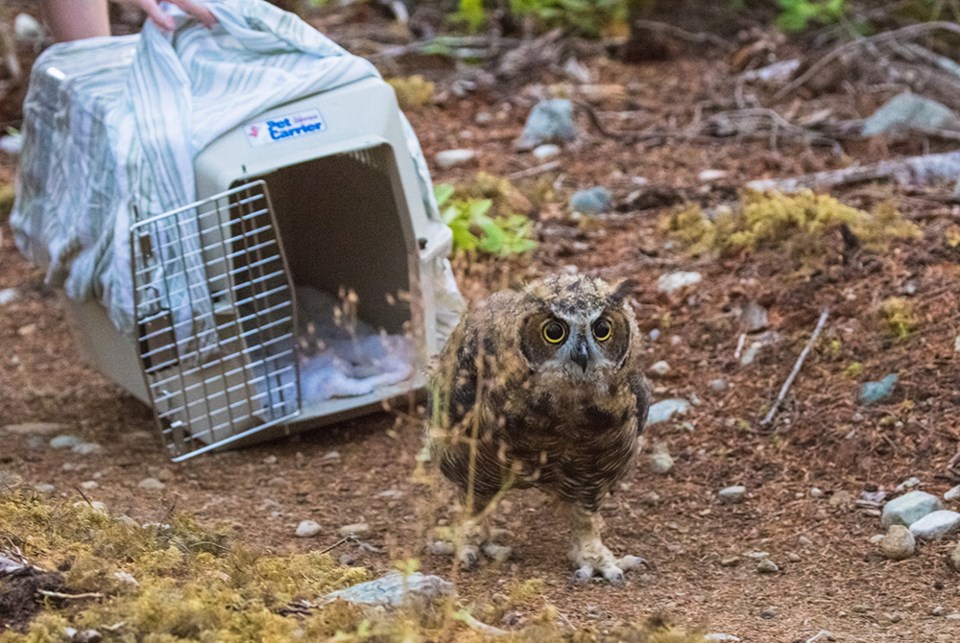FUZZY FLYERS: Hikers spotted two fuzzy balls of fluff, fallen from a nest, sitting amid the dried ground cover on the Penticton trails. The rescuers had to go some distance to get cell phone reception to call Powell River Orphaned Wildlife Society (PROWLS). When they returned, the owlets had gone exploring and were finally found a considerable distance away, sitting up on a stump which, since they were not yet flying, they would have climbed up.
Just babies, their only defence was hissing and clacking of the beak, which was enough to deter the would-be rescuers, who preferred to wait for PROWLS president Merrilee Prior to arrive. The owlets were taken back to PROWLS, where they were fed as many mice as they could eat while waiting to be transferred.
They were sent via Pacific Coastal Airlines to Orphaned Wildlife Rehabilitation Society (OWL) in Delta, the raptor specialists. Two and one-half months later they returned, no longer little nestlings with fuzzy eyelids. They were released at sunset back in their trails and close to their nest. No parents were about.
Great-horned owls are covered in extremely soft feathers that insulate them against the cold and help them fly very quietly in pursuit of prey. Their short, wide wings allow them to maneuver among the trees of the forest and their strong talons when clenched require a force of 13 kilograms to open. The owls use this deadly grip to sever the spine of large prey.
Crows may gather from near and far to harass an owl for hours, with good reason, because the great-horned owl is their most dangerous predator.



